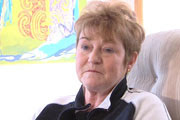Organ donor reality falling short of hopes
From The Australian, December 1, 2007.
More Australians than ever are registered to donate organs, but the numbers aren't translating to more transplants, writes Lynnette Hoffman.
TO businessman Marvin Weinman, it is simple maths that doesn't add up: nearly 5.5 million Australians are registered to donate their organs and that figure is climbing.
So how is it that the overall number of donors per million Australians is lower now than it was 20 years ago -- while other countries, such as Spain and the US, have doubled numbers?
Just over two years ago Weinman co-founded the lobby group Sharelife in an effort to rectify that disparity. Sharelife has since hired companies such as Bain and Company and The Leading Edge to research the world's best practice in organ donation and figure out why Australia isn't getting the same results as overseas.
As of October this year 1855 Australians were on waiting lists for organ transplants. But in 2006 just 739 transplants were performed from a total of 202 donors.
One of those waiting for a transplant is 60-year-old Anthony Parrelli, a Vietnam veteran who four years ago was diagnosed with pulmonary fibrosis, a lung disease often found in miners or people exposed to asbestos. Parrelli now depends on an oxygen machine to keep him alive. It's meant a huge loss of freedom -- he becomes short of breath just from speaking, and activities such as walking up a flight of steps or cutting the grass are no longer possible for him.
He's had to quit his job as a fruit and vegetable wholesaler and he's no longer able to help with local soccer training. The limitations have left Parrelli bordering on depression. He sees a transplant as an opportunity to restore some of the life he used to have. Read the full story.
Chances of infection low, organ donation official says
From The Jeffersonian in Maryland.
While the news that four recipients in Chicago became infected with HIV and hepatitis C after organ transplants caught many off guard, the head of a Lansdowne-based organization that helps facilitate organ donations in Maryland said chances of another such incident are slim.
Charlie Alexander, president and chief executive officer of the Living Legacy Foundation on Twin Springs Road in an industrial park off Washington Boulevard, said the last report of an organ recipient contracting HIV from a donation had been in 1986. Read the article.
Program to educate students on organ donation
PMJ.com in Florida reports that students at four area schools will participate in a program presented by Chain Reaction this week to encourage organ donations.
The program was organized in honor of 16-year-old William McMahon, a former student at Brown Barge Middle School and Pensacola High School who was unable to find a donor after liver failure two years ago.
Volunteers from Chain Reaction, Pensacola's teen volunteer center, will take William's story into classrooms at his former schools, West Florida High School of Advanced Technology and Washington High School. The program's objective is to educate students about organ donation and encourage them to have a conversation with their parents about being an organ donor. Read the full story.
Transplant recipient drawing attention to organ donation

Tv3 in New Zealand broadcast a story about Andrea Needham who, eight months ago, had the double lung transplant which has given her a new life.
Transplant recipients are not told their donor's identity unless the family agrees.
Thus far, the family which donated lungs to Needham has not been in touch.
That is why Needham organised the first ever transplant team for Taranaki's “Around the Mountain” relay – it is a way of publicly thanking the donor family she may never get to meet.
In the last twenty years around 300 families have donated the organs of a relative.
But doctors will not go ahead if close relatives get cold feet, even when "donor" appears on your license.
That is one of the primary reasons why Needham urges people to talk about organ donation with their family. View the article.
“You Have the Power to Save Lives – Sign Your Donor Card & Tell Your Loved Ones of Your Decision”
No comments:
Post a Comment